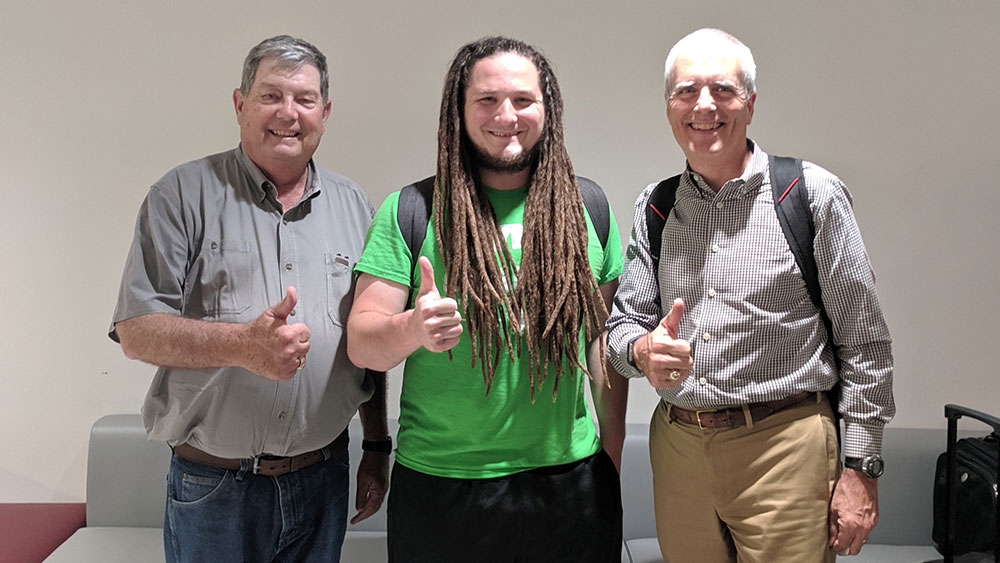
Michael Bass, a doctoral student in the Department of Multidisciplinary Engineering, always knew he wanted to own a business – just like his dad and grandfather – but he didn’t know how to make that a reality. He had already double majored, earning a bachelor’s degree in both electrical engineering and computer science, and had started working on his doctoral degree when an email advertising an entrepreneurship course caught his eye.
“I always wanted to do a startup, but I had no idea how to go about it. I had no idea what was involved,” he said. “How do you actually take something that is an idea to potentially commercializing it?”
Enter Rodney Boehm, director of the Engineering Entrepreneurship Program and instructor for Bass’ first class. Bass took the class and has continued to be involved with the program for the past several years, honing his skills by participating in all facets of the Engineering Entrepreneurship Program.
Currently Bass is working on a startup, Icii Technologies, where he is developing technologies to implement artificial intelligence in FPGAs (field-programmable gate arrays). This startup has been through the National Science Foundation’s Innovation Corps (I-Corps) grant, where he received $50,000 in funding and is preparing for the Small Business Innovation Research (SBIR) grant in hopes of securing $250,000 in seed funding.
Bass’ technology takes trained machine learning models and implements them into hardware. For example, when a camera is being used and a cat is detected, artificial intelligence has made great progress in recognizing that the object is indeed a cat. However, that information is typically cloud-based. Bass is trying to get that information located on the camera itself so that every camera could better understand what it is seeing. The application for this technology could be used in large area searches such as those performed by the U.S. Coast Guard or in border security operations.
“The Engineering Entrepreneurship Program is a game-changer for engineering students,” Bass said. “It’s giving engineering students an opportunity to learn the business side of things, the use case, the customer interaction, the why, which will put you ahead as an employee.”